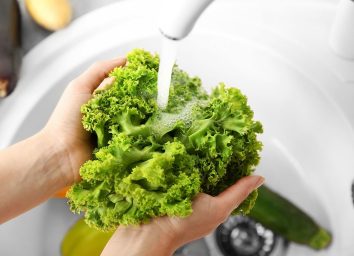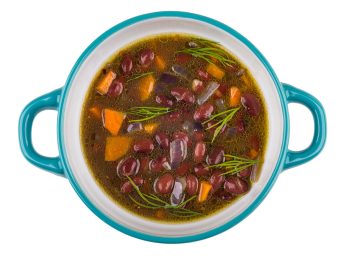One Major Side Effect of Having a Dirty Fridge
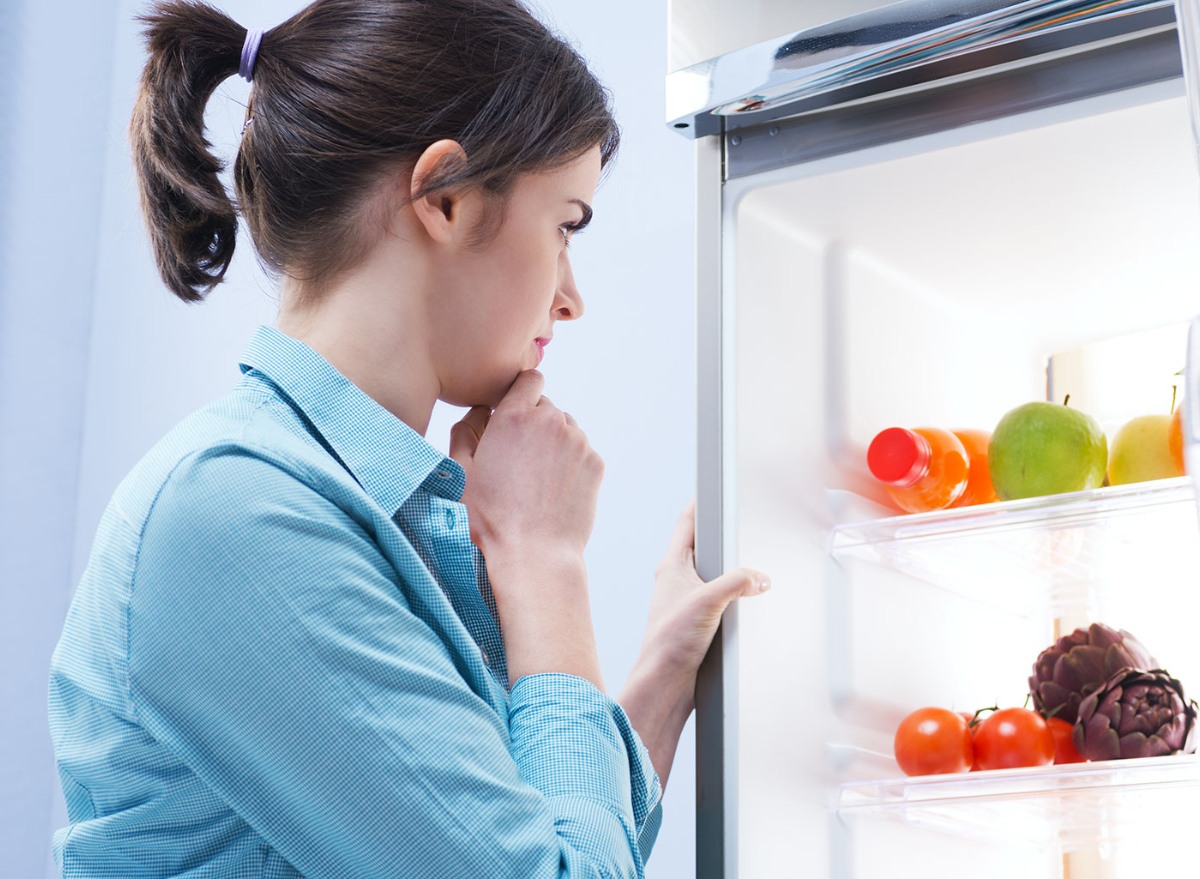
In case you missed it, last week's national recall of Tyson chicken products has now been expanded to 30 Tyson products after one person died from food poisoning. Quality assurance might start in the food processing plant, but it trails all the way inside your home. Especially as extreme summer weather can affect the functioning of household appliances, the Centers for Disease Control and Prevention (CDC) has explained why the primary spot for food storage—your refrigerator—requires best practices to maintain food safety for you and your family.
Already, summer storms and severe heat have caused power outages in some parts of the country. Whether you've been personally affected by this or not, it's also that on-the-go time of year when regular household chores can sometimes fall to the back burner. Most of us can agree that if there's one area of the home that's key to keep clean, it's the kitchen… and the CDC drives this home by saying: "A refrigerator is one of the most important pieces of equipment in the kitchen for keeping foods safe . . . One very important step in keeping your food safe is keeping your refrigerator clean."
Read on for some of the CDC's suggestions for cleaning your fridge to promote food safety. (Then once it sparkles, check out One Major Effect of Eating Carrots, Says Science.)
Wipe up spills.
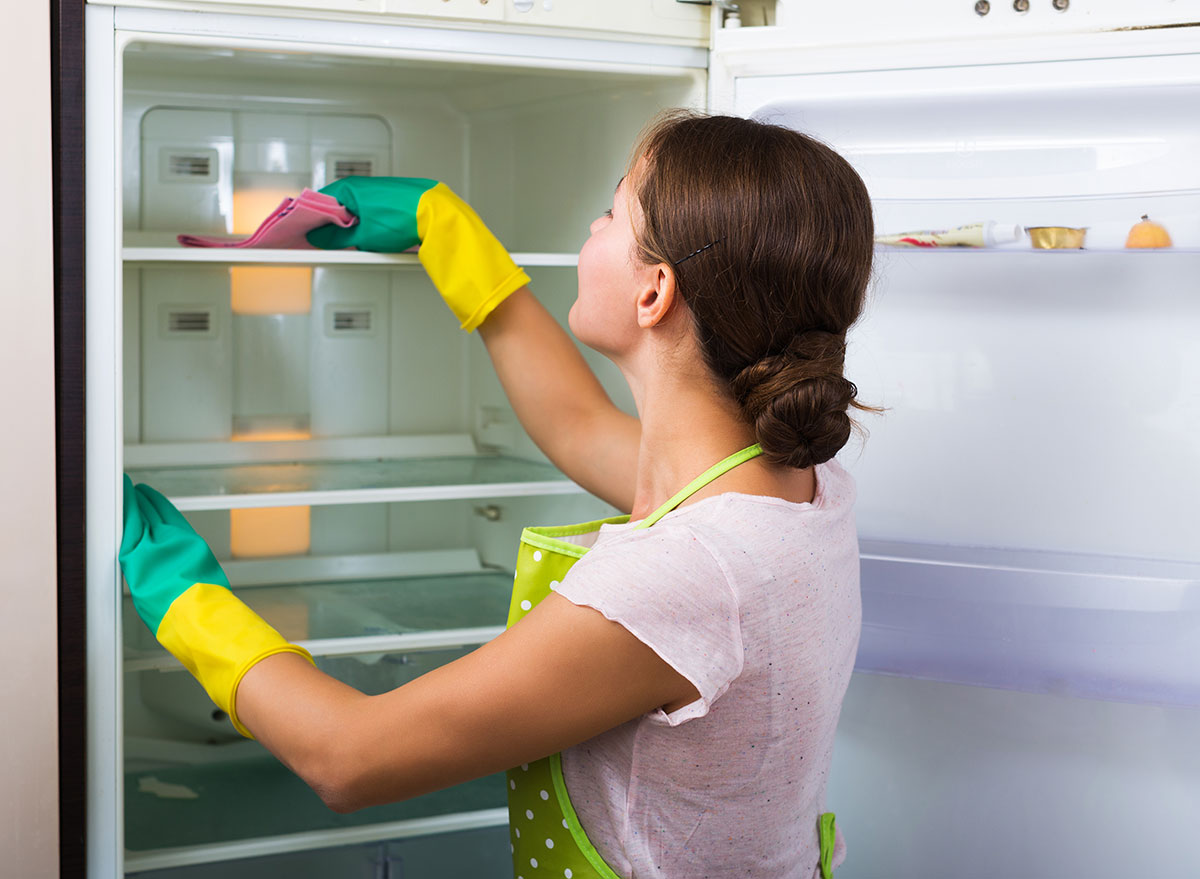
The CDC lists this as their first fridge-cleaning tip: "Wipe up spills immediately—clean surfaces thoroughly with hot, soapy water; then rinse."
Make a routine of tossing outdated foods.
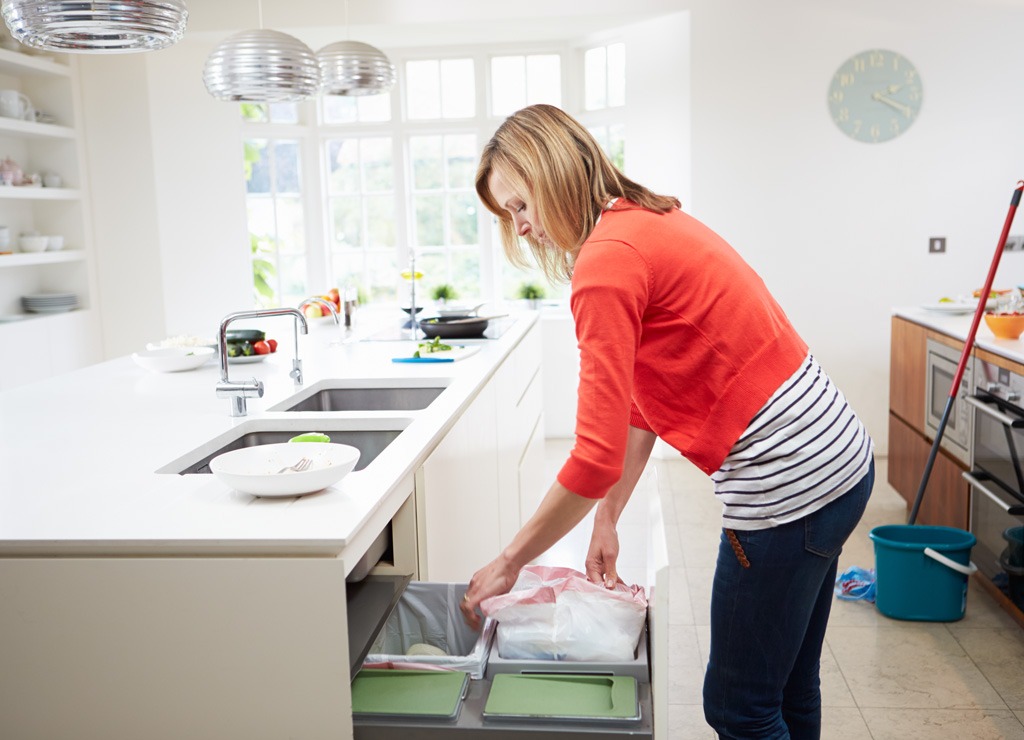
Garbage night might be a great time to practice the CDC's next tip: "Once a week, make it a habit to throw out perishable foods that should no longer be eaten."
For non-experts, sometimes it's hard to pinpoint exactly when a food is past its prime. The CDC offers: "A general rule of thumb for refrigerator storage for cooked leftovers is 4 days; raw poultry and ground meats, 1 to 2 days." There are very few refrigerated foods that the CDC suggests are safe to eat after one week's time. (A detailed list is here.)
Choose your cleaning product carefully.
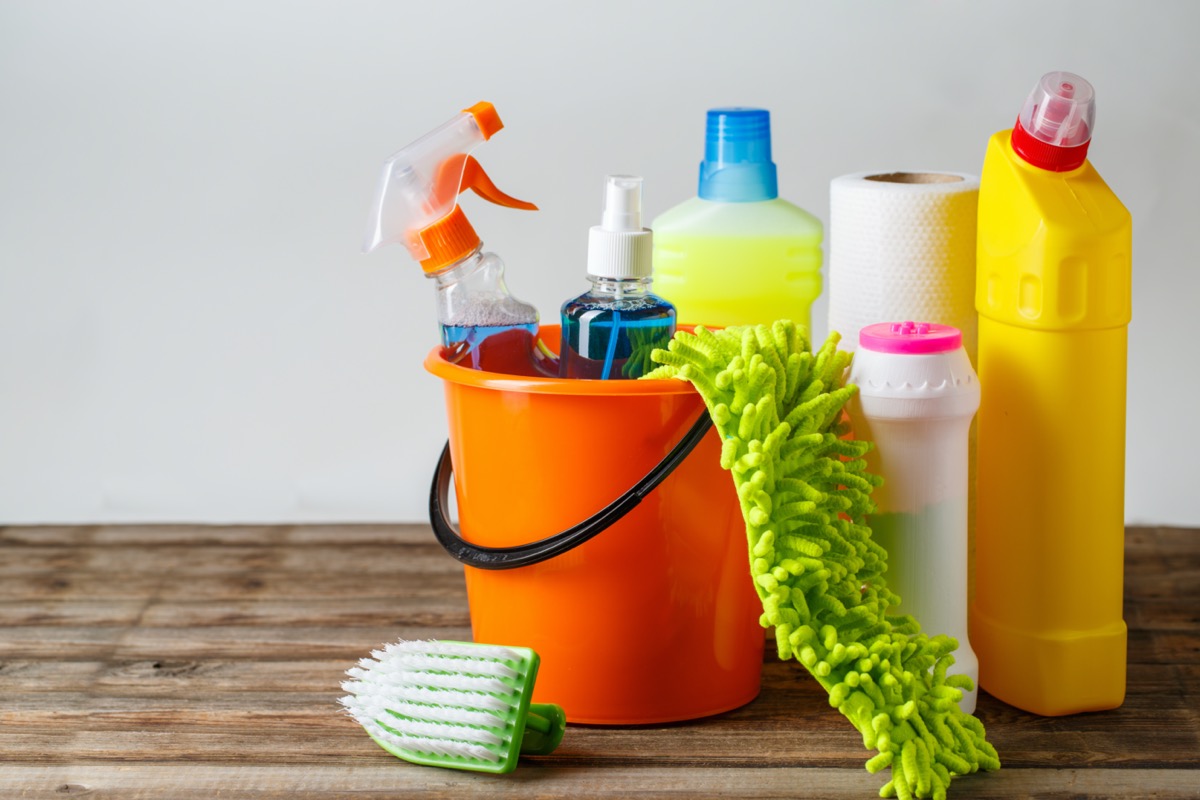
The CDC advises to "avoid using solvent cleaning agents, abrasives, and all cleansers that may impart a chemical taste to food or ice cubes." Keep in mind, this isn't only a matter of taste: The CDC says some cleaning products may "cause damage to the interior finish of your refrigerator," which could affect temperature regulation. They recommend you should follow the manufacturer's instructions for selecting the cleaning products to use in your fridge.
Consider using vinegar to clean your fridge's interior.
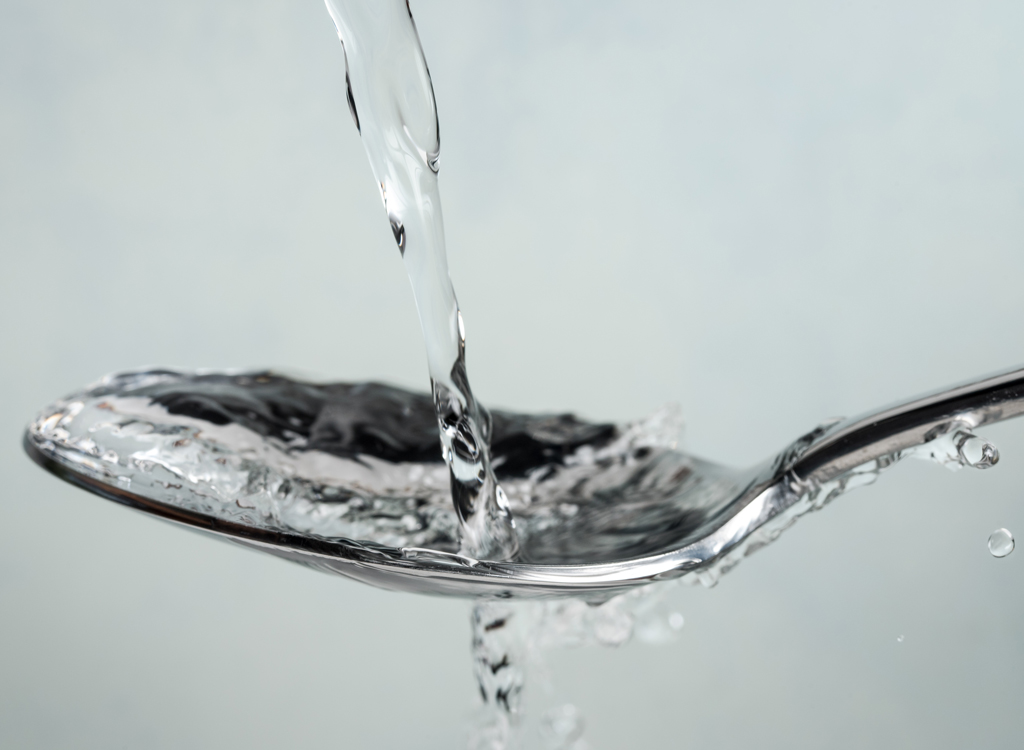
Per the CDC, "Vinegar provides acid which destroys mildew." They recommend cleaning the inside of your fridge with a solution of equal parts vinegar and water.
If the fridge malfunctions…
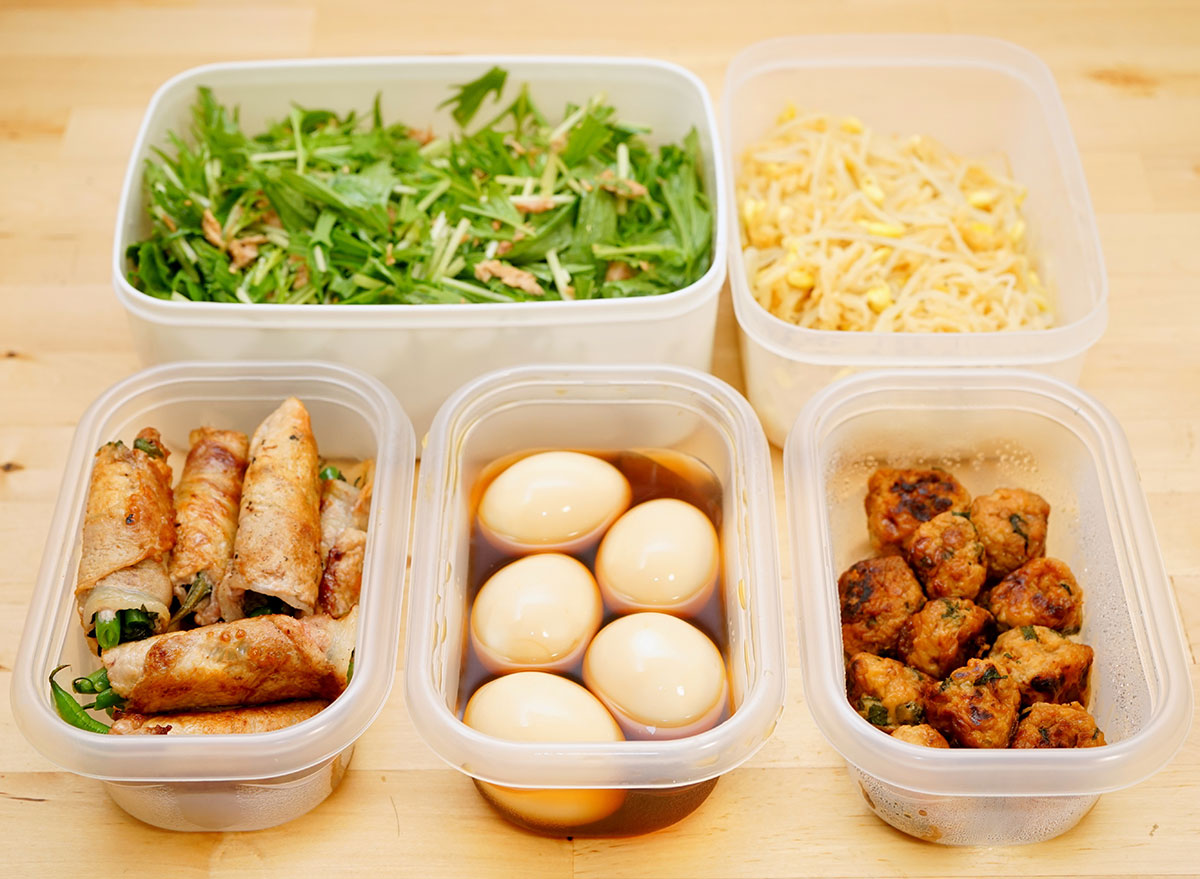
If an outage or other factor causes your fridge to turn off, the CDC recommends that you keep it closed and consider swiftly moving some refrigerated foods to the freezer to prolong cooling. They advise that perishable foods that have been stored without power for more than four hours are no longer safe.
And, if the outage leaves a potent smell in the fridge, the CDC says sprinkling baking soda or fresh coffee grounds may absorb the odor.
There are so many smart ways to keep yourself and your family safe from food-related illness. Explore our Food Safety section, and get more healthy food news:
- One Major Side Effect of Drinking Your Coffee Before Breakfast, Expert Says
- This Trick Can Strengthen Your Heart in Minutes, Says New Study
- The #1 Best Supplement to Reduce Inflammation, Say Dietitians
